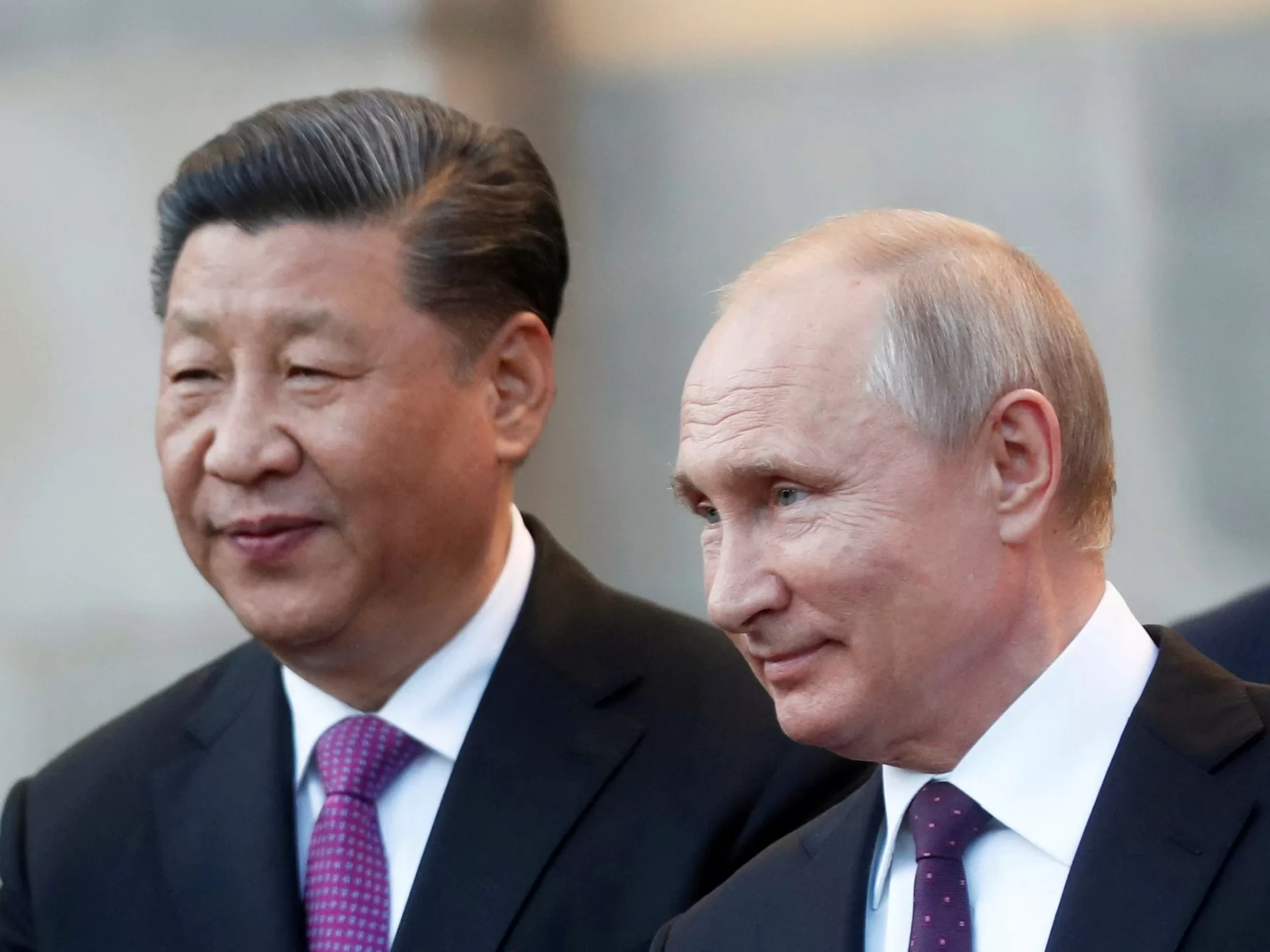On the surface, China has emerged as one of the principal beneficiaries of the war. Its purchases of discounted Russian energy have provided the Kremlin with a vital economic lifeline amid Western sanctions. Moreover, the depletion of United States and NATO weapons stockpiles has led some to argue that an extended war could give China’s military a strategic advantage over rivals who are burning through their arsenals in their efforts to support Ukraine. Yet, the European military buildup, spurred by the ongoing war, could pose a significant challenge to any Chinese military ambitions. This dynamic suggests that a prolonged war in Europe may not be in Beijing’s best interest, contrary to some interpretations.
There are growing signs that Beijing may be getting cold feet about its deepening entanglement. Recent shuttle diplomacy efforts by China’s special envoy Li Hui have raised doubts about whether Beijing truly desires a protracted war that upends the global order from which it has enormously benefitted.
China’s expectations for a swift Russian victory, likely influenced by high-profile meetings between Putin and Xi before key military escalations, reveal a pattern of pre-coordinated aggression. Their encounters before the 2022 Ukraine invasion at the Beijing Winter Olympics and prior to the 2014 Crimea occupation at the Sochi Winter Olympics suggest an anticipated strengthening of Sino-Russian ties. This situation raises questions about the outcomes China expected from these invasions, outcomes that have not materialised as foreseen and possibly promised by Putin.
If such private assurances were made, they spectacularly failed to anticipate Ukraine’s fierce resistance and the West’s resolve to arm and support Kyiv. Far from the display of overwhelming force that could have emboldened China’s ambitions towards Taiwan, the war has revealed Russia as a declining power whose military capabilities are no match for Ukraine’s defensive commitment.
This miscalculation has forced Beijing to grapple with the sad reality. Rather than showcasing how a superpower can easily subdue a smaller neighbour, the war has exposed the risks, costs and potential for catastrophic miscalculation.
Economic factors are also straining China’s position. Though benefitting from Russian energy exports, Beijing has seen its global trade interests disrupted by sanctions, supply chain shocks, threats to shipping routes, and instability in key markets. Ukraine’s far-reaching attacks on Russia’s infrastructure and nuclear sabre-rattling only amplify these risks.
Moreover, China’s pursuit of narrow self-interest through the war is prompting scrutiny and blowback that could hinder its strategic ambitions. Secondary sanctions on Chinese firms accused of undermining Russia sanctions will likely expand, while transits through European ports and airports may face greater inspection. Such “long-arm” tactics by the West could foreshadow harsher treatment should Beijing move overtly against Taiwan.
Crucially, recent signs point to China recalculating its stance. Xi’s first call with Ukrainian President Volodymyr Zelenskyy in April 2023 marked a surprising turn, given Ukraine’s expected elimination per Moscow’s plan. Beijing’s continued role as the top buyer of Ukrainian grain under the grain deal and even after its collapse underscores its pragmatic trade interests.
These realities are starting to shape China’s rhetoric and actions. Li Hui’s diplomatic tour has amplified Beijing’s calls for a ceasefire and negotiations – an implicit acknowledgement that the war has veered off its expected course and is no longer aligning with China’s interests.
Moreover, Russia’s recent $25bn grain agreement with China emerges not as a testament to unity but as a revelation of Moscow’s strategic anxieties. This move aims to curtail Ukraine’s grain export channels to China, challenging the trade between Kyiv and its main trade partner. This step by Moscow paradoxically unveils a deeper narrative. It signals Russia’s intent to tether Beijing closer, perhaps too closely for an alliance purporting to stand on equal footing. If Russia feels compelled to make such compensatory economic arrangements with China to retain its favour, it runs counter to the image of a close, unwavering alliance of mutual support that both sides have attempted to project.
Of course, powerful counterpressures still bind Beijing to Moscow. Historical ties, ideological opposition to US hegemony and NATO expansion, and concerns about alienating Russia and reinforcing perceptions of Western bias will continue shaping China’s calculus.
But the war’s human, economic and strategic costs are mounting. With each escalation, China is being forced to confront contradictions between its rhetorical commitment to sovereignty and its tacit enabling of Russia’s breach of Ukraine’s territorial integrity on a massive scale.
Ultimately, the Ukraine war has presented China with a stark choice: double down on propping up a diminished Russian state or pursue a new reality by engaging seriously in peace talks to end the war. The protracted war has strengthened potential rivals, exposed China to novel sanction threats, disrupted its economy, and drained its principal partner of resources and military capability. While Beijing may seek to render Russia a sanctioned, pliant puppet regime wholly dependent on China, doing so carries immense risks of secondary sanctions and reputational costs. Alternatively, China could lean into its recent subtle diplomacy – an uncharacteristic departure from its aversion to “global policeman” roles – as a sign it has grown weary of a war that is increasingly damaging rather than beneficial to its interests.
Of course, these options are not mutually exclusive. Even as it cautiously explores off-ramps to the war, Beijing may simultaneously work to bind a weakened Moscow closer as a vassal state. But extending the war indefinitely would be fruitless for China, needlessly burning the resources of both it and its would-be subordinate partner.
The views expressed in this article are the author’s own and do not necessarily reflect Al Jazeera’s editorial stance.
